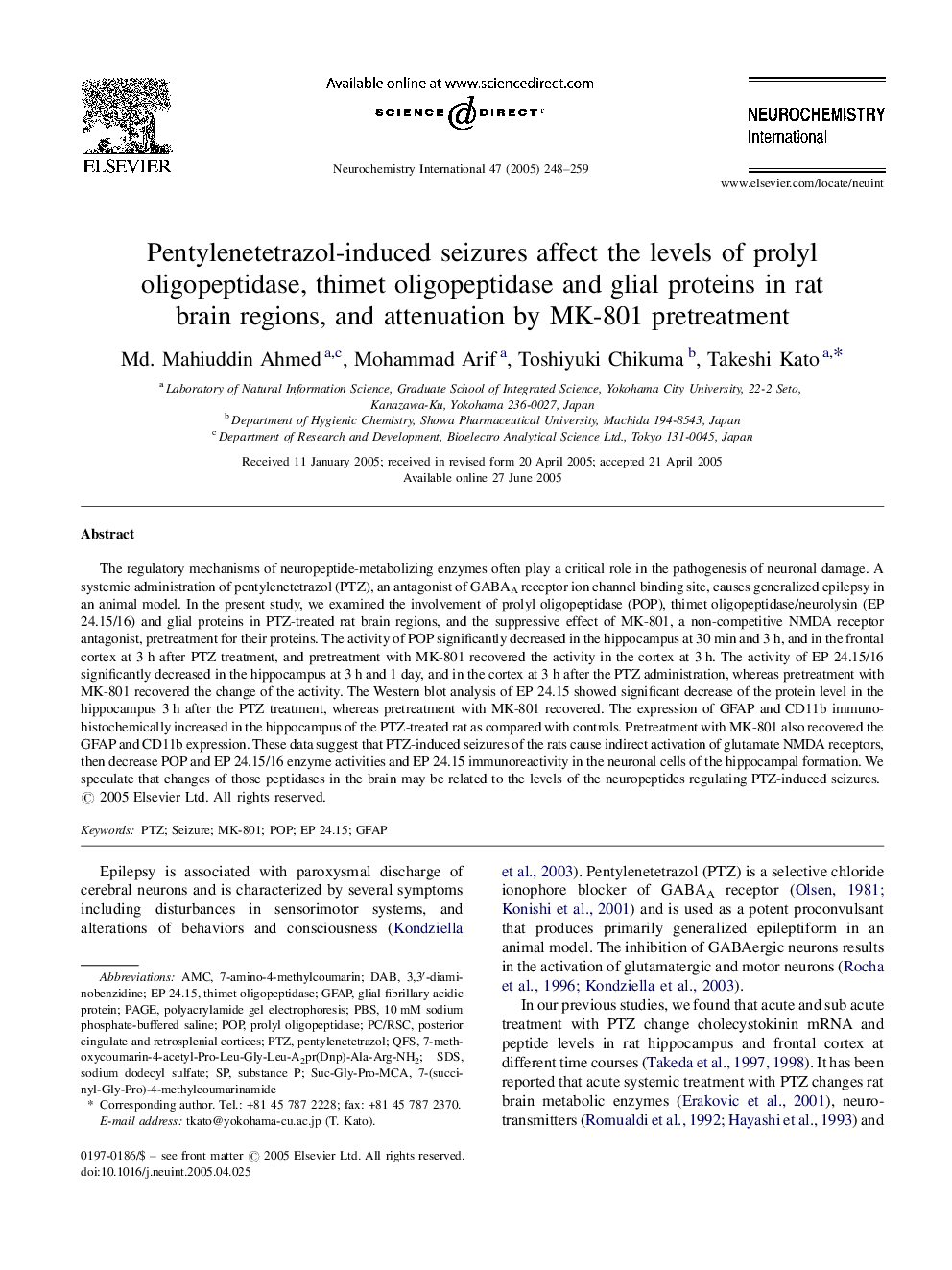| Article ID | Journal | Published Year | Pages | File Type |
|---|---|---|---|---|
| 10958486 | Neurochemistry International | 2005 | 12 Pages |
Abstract
The regulatory mechanisms of neuropeptide-metabolizing enzymes often play a critical role in the pathogenesis of neuronal damage. A systemic administration of pentylenetetrazol (PTZ), an antagonist of GABAA receptor ion channel binding site, causes generalized epilepsy in an animal model. In the present study, we examined the involvement of prolyl oligopeptidase (POP), thimet oligopeptidase/neurolysin (EP 24.15/16) and glial proteins in PTZ-treated rat brain regions, and the suppressive effect of MK-801, a non-competitive NMDA receptor antagonist, pretreatment for their proteins. The activity of POP significantly decreased in the hippocampus at 30Â min and 3Â h, and in the frontal cortex at 3Â h after PTZ treatment, and pretreatment with MK-801 recovered the activity in the cortex at 3Â h. The activity of EP 24.15/16 significantly decreased in the hippocampus at 3Â h and 1 day, and in the cortex at 3Â h after the PTZ administration, whereas pretreatment with MK-801 recovered the change of the activity. The Western blot analysis of EP 24.15 showed significant decrease of the protein level in the hippocampus 3Â h after the PTZ treatment, whereas pretreatment with MK-801 recovered. The expression of GFAP and CD11b immunohistochemically increased in the hippocampus of the PTZ-treated rat as compared with controls. Pretreatment with MK-801 also recovered the GFAP and CD11b expression. These data suggest that PTZ-induced seizures of the rats cause indirect activation of glutamate NMDA receptors, then decrease POP and EP 24.15/16 enzyme activities and EP 24.15 immunoreactivity in the neuronal cells of the hippocampal formation. We speculate that changes of those peptidases in the brain may be related to the levels of the neuropeptides regulating PTZ-induced seizures.
Keywords
PBSPosterior cingulate and retrosplenial corticesSuc-Gly-Pro-MCAMK-801AmCPAGEPTZGFAPQFSSDSDAB3,3′-diaminobenzidine7-amino-4-methylcoumarinpolyacrylamide gel electrophoresisThimet oligopeptidaseseizuresodium dodecyl sulfateSubstance PpopGlial fibrillary acidic proteinprolyl oligopeptidasepentylenetetrazol
Related Topics
Life Sciences
Biochemistry, Genetics and Molecular Biology
Cell Biology
Authors
Md. Mahiuddin Ahmed, Mohammad Arif, Toshiyuki Chikuma, Takeshi Kato,
